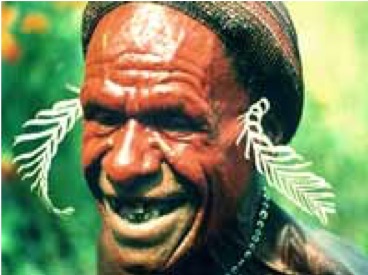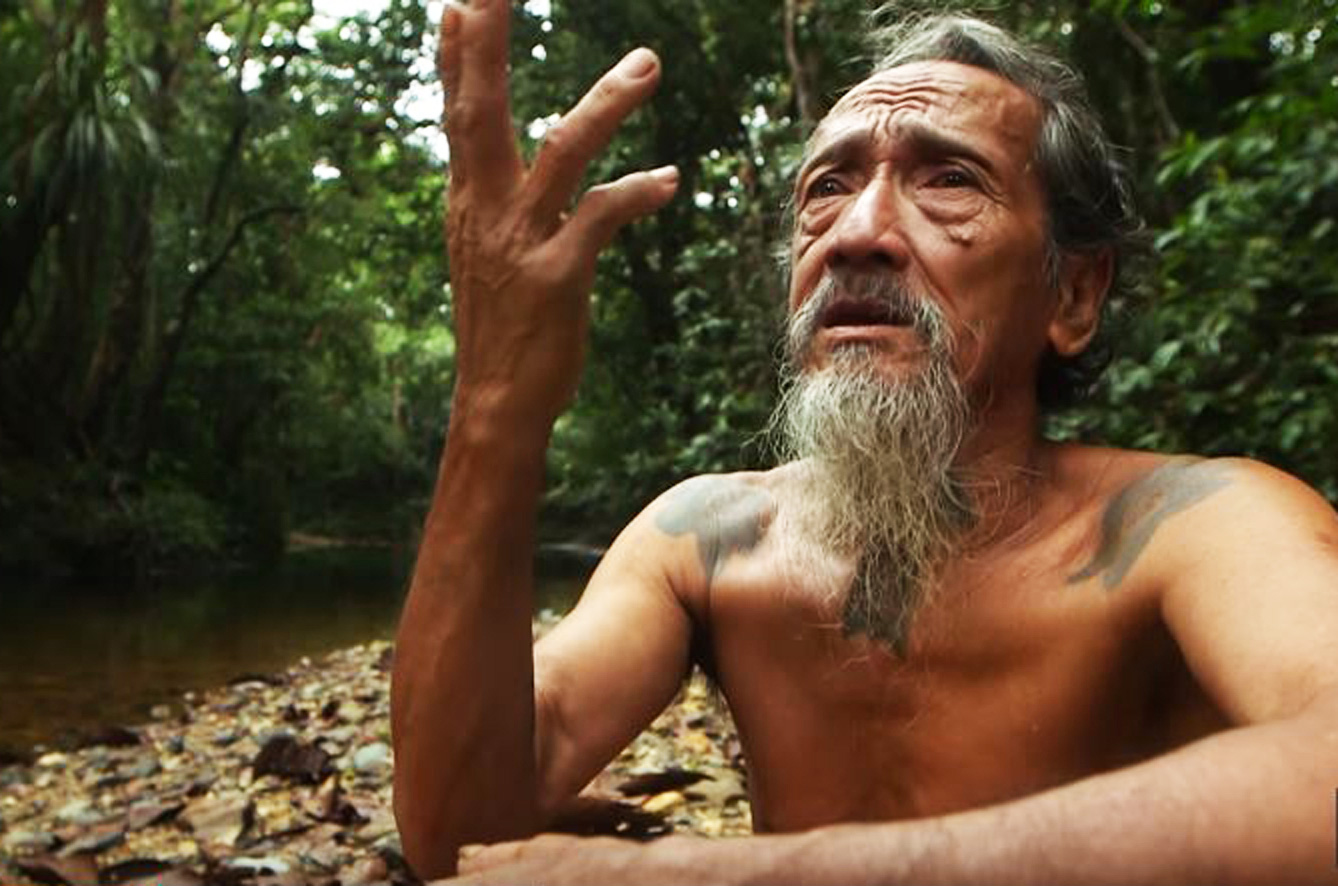Curator
 — David N. M.Mbora, Associate Professor of Biology and Environmental Science, Whittier College
— David N. M.Mbora, Associate Professor of Biology and Environmental Science, Whittier College
Arrows Against the Wind
West Papua, the "Amazon of Asia" is a vast tropical rainforest that has been occupied for 25,000 years. The Dani and the Asmat people have lived in spiritual harmony with the land for millennia. Now they are threatened by Indonesia's policy of assimilation and the destruction of their lands.

Curator
This film was selected by David Mbora, Associate Professor of Biology and Environmental Science, Whittier College.
Why I chose this film
In courses covering an introduction to environmental science, students learn that the main cause of biodiversity loss is habitat loss. They also learn that the increase in population and of per capita resource consumption are the drivers of that habitat loss. However, it is usually not made clear that bad policies, repressive and corrupt governments, racism, and complicit international institutions exacerbate these factors. Its age notwithstanding, this film shines a bright light on all these issues, and, as such, it is a valuable pedagogical tool.
Teacher's guide
Please see the teacher's guide for maps, background information and suggested subjects, questions and activities.
SYNOPSIS
The film Arrows Against the Wind is a documentary about the horrors of social injustice perpetrated by the government of Indonesia upon the indigenous peoples of West Papua through environmental destruction and forced assimilation. Indonesia annexed West Papua as a province in 1963, renaming it Irian Jaya, to acquire land for its burgeoning population and to exploit the country’s mineral wealth.
Often called the “Amazon of Asia” for its biological diversity, West Papua is also a treasure trove of cultural diversities. There are more than 300 different tribes whose unique ways of life are tied to the biological diversity of the land. The film exemplifies these unique ways of life with the story of the Dani people, one of the largest tribes in West Papua. The Dani have lived in the Baliem Valley for more than 25,000 years, but two policies that the Indonesian government is implementing present a grave danger to their customs and culture. The first is the aggressive push to “Indonesianize” the Dani. But the second policy, one of transmigration, poses a far greater threat. Vast areas of the rainforest are cleared to make way for camps and farms that will accommodate people from the crowded Indonesian islands of Bali and Java. The consequences for indigenous people will be tragic losses: of hunting and fishing grounds, sago trees, means of cultural expression, and much more, all without cause or compensation.
While the losses and inevitable marginalization are in the near future for the Dani people, they are reality for the Asmat tribe. By way of archival footage, we learn that the Asmat were fierce, proud, and artistic people for millennia. Then the Indonesian government implemented its policies of transmigration and rapacious resource exploitation, ruining everything for the Asmat. The change and losses documented in the film were recent, quick, and devastating. It is a sad story and quite difficult to watch, but it is one that is being repeated in other parts of West Papua even now.
THE ENVIRONMENTAL JUSTICE FOCUS OF THE FILM
This film is about environmental justice because the communities, which are the subjects of the documentary, are experiencing environmental degradation and suffering the effects of pollution due to resource exploitation. Furthermore, the communities in West Papua were not involved in making important decisions about the mining on their land, and the government does not seem to take their concerns seriously.
Download the teacher's guide for Arrows Against the Wind (PDF)
No transcript available.
"A unique and provocative examination of colonialism and humanity's relationship with nature. With stunning visual acuity, this video documents the tragic social and environmental consequences when a natural relationship becomes unbalanced... This important documentary clearly illustrates the inter-connection between political, social, and environmental actions. Bound to be a good discussion starter, it is highly recommended, especially for universities and academic library collections." - Video Rating Guide for Libraries
Awards
Silver Apple, National Educational Film & Video Festival
Finalist, Birmingham International Educational Film Festival Vermont International Film Festival Dreamspeakers Festival
Citation
Main credits
Groome, Tracey (film director)
Groome, Tracey (film producer)
Groome, Tracey (screenwriter)
Thompson, Liz (screenwriter)
MacKenzie, Patrick (narrator)
Other credits
Cinematographer, Joel Peterson; editor, Greg Miller; scored music, Felix Davies.
Distributor credits
Tracey Groome
Tracey Groome
Tracey Groome
Tracey Groome
Docuseek subjects
Asian Studies
History
Anthropology and Archaeology
Politics and Political Science
Geography
War and Peace
Ethnography
Forests and Rainforests
Buddhism
Asia
Government Policy
Agriculture and Food
Capitalism
Mining Sector
Corporate Social Responsibility
Citizenship, Social Movements and Activism
Human Rights
Race and Racism
Forestry
Food
Global / International Studies
Indigenous Studies
Biodiversity
Ethics
Colonialism
South Asia
Women's Studies
Environmental Geography
Distributor subjects
Asian Studies
Biodiversity
Colonialism
Cultural Anthropology
Democracy
Development
Ecosystems
Envirnmental Geography
Environmental Justice
Farming
Fishing
Food
Forestry
Forests
Global Issues
Government
Habitat Loss
History
Human Rights
Indigenous Studies
Indonesia
Mining
Oceania Studies
Public Health
Religion and Ecology
Spirituality
transmigration
Keywords
Welcome to Docuseek2!
Docuseek2 is a streaming platform of the best documentary and social issue films available for the higher education community.
Anyone may search for titles and find detailed information about the titles. To preview films or license them for streaming, you must register and login.
Currently, we support online registration for anyone affiliated with a higher education institution. Please inquire if you are with a K-12 district or school or with a public library.
Click the Close button to get started!



